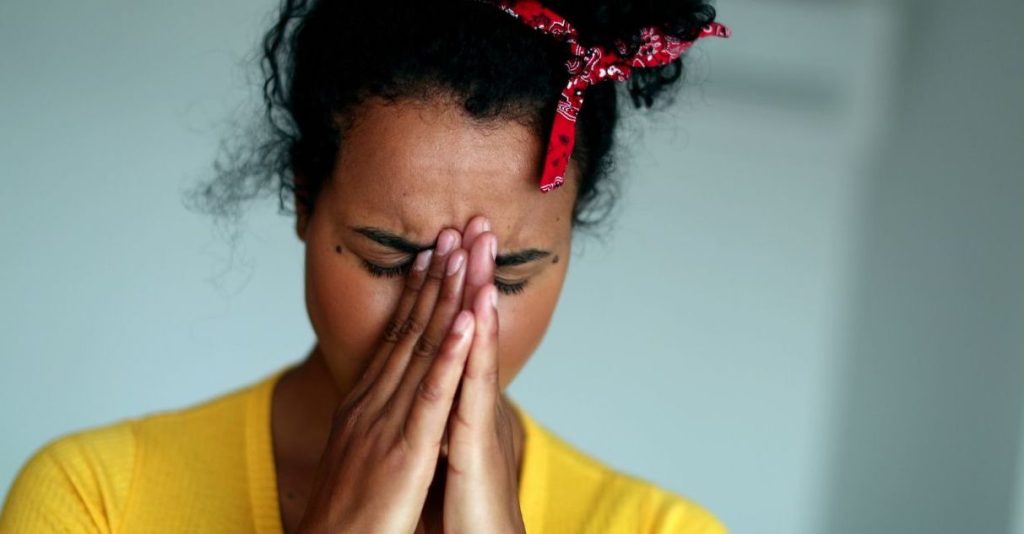
Anxiety and worry are simply fears, and yes, it’s a feeling we have all experienced at times. It’s like our body’s alarm system that turns on when we feel threatened and stressed about something that might happen in the future.
Jump to sections:
What’s the purpose of anxiety?
As mentioned in the introduction, anxiety and worry is your body’s way of getting ready to deal with something it sees as a challenge or threat.

So, what’s the difference between worry and anxiety? Very briefly, anxiety is a very strong feeling of worry, and they both stem from the same fear response. In this article, I am not focusing on separating the terminology too much because it instead aims to highlight the underlying feeling of fear.
5 Common fears causing worry & anxiety:
- I will not be able to pay the bills tomorrow.
- I will fail my presentation at work later this afternoon.
- I might be getting sick.
- Others will laugh at me.
- I fear I’ll experience the same past pain (trauma)
Our diet also plays a role: Worry and anxiety can stem from us not nourishing our body with the nutrition it needs. This leads to our brain believing there is a famine, which threatens our survival. The result of this state is stress hormones circulating in our body and increasing our feelings of worry and anxiety.
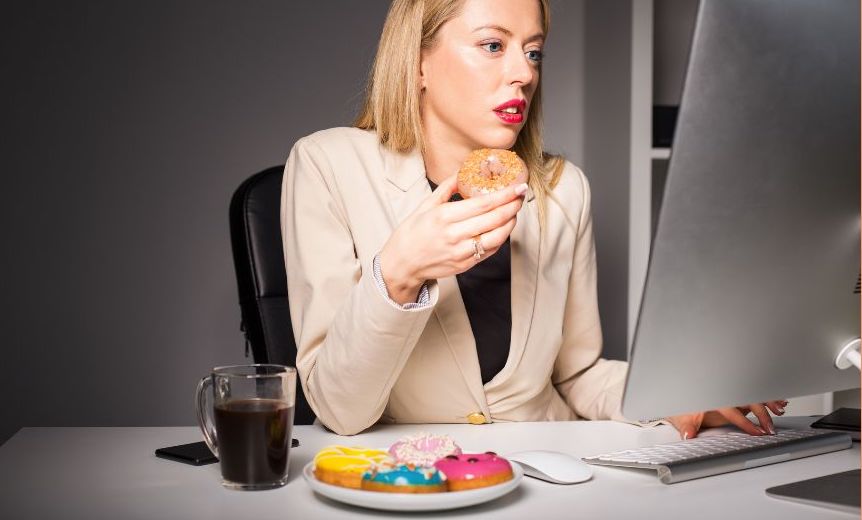
Want to skip reading & listen instead?
Why does anxiety make life so hard?
It is expected to feel worried occasionally, but sometimes, our alarm system, also known as the Sympathetic Nervous System, can be a bit too sensitive.
Read more about the Nervous System & Anxiety here.
Our nervous system wants to help us survive, but sometimes too much
Our alarm system, the correct term being the Sympathetic Nervous System, also known as our fight-or-flight system, might activate itself even when nothing dangerous or threatening surrounds us, making us feel anxious for no obvious reason. When this happens frequently, it can make everyday life harder.
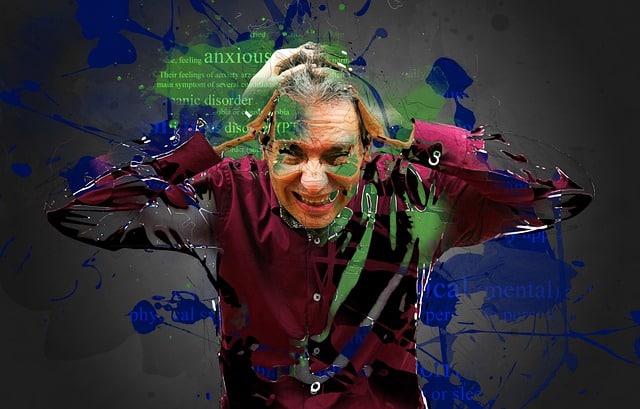
Stress hormons blocks the ”good” feelings
When our bodies are under stress hormones (worry and anxiety), there is no room for the emotions we typically label good, such as love, care, happiness, peace, calm, and so on.
If we, most of the time, exist in a state of worry and stress, it affects our lives negatively, hindering us from doing the things we want to do and giving us purpose and joy!

How to begin liberating yourself from your fears
So, if you struggle with worry and anxiety, set the intention to understand why these fears exist in you so that you can work on these fears and be free from destructive anxiety.
Once you have come to understand your emotions better, you are prepared to start exploring the reasons behind your worries or anxieties.
What are your fears? Are you worried about the future or several things happening?
Be curious about your inner and outer environment
For several years, I intentionally worked to confront and overcome my fears, which has led me to feel at home in myself and my body.

Today, I no longer suffer from anxiety as I used to; however, it does arise occasionally, and I believe it’s important to remain humble and recognize that we never know what challenges lie ahead of us.
Letting go of unnecessary fears was the key that unlocked my freedom. Anxiety no longer has a hold on me – I’m so grateful!
Working on the root causes of my fears, plus facing them (rewiring the brain), has helped me to no longer have panic attacks. The less intense daily anxiety I used to have, especially during the evenings, also disappeared. But as I said, I’m not totally immune to anxiety; sometimes it hits me.
A quick solution to feel less anxious and lower cortisol
Today, when I feel anxiety creeping in, I usually start by eating something high in fat, like butter or fatty meat, because anxiety can stem from stress and high cortisol levels. Consuming fat lowers cortisol levels very quickly, and I follow a ketogenic, meat-based diet due to its remarkable effects on both the body and mind. I found this trick by listening to Dr. Elizabeth Bright who has written groundbreaking books on why woman have to eat fat to have healthy hormones. Highly recommend checking her out.
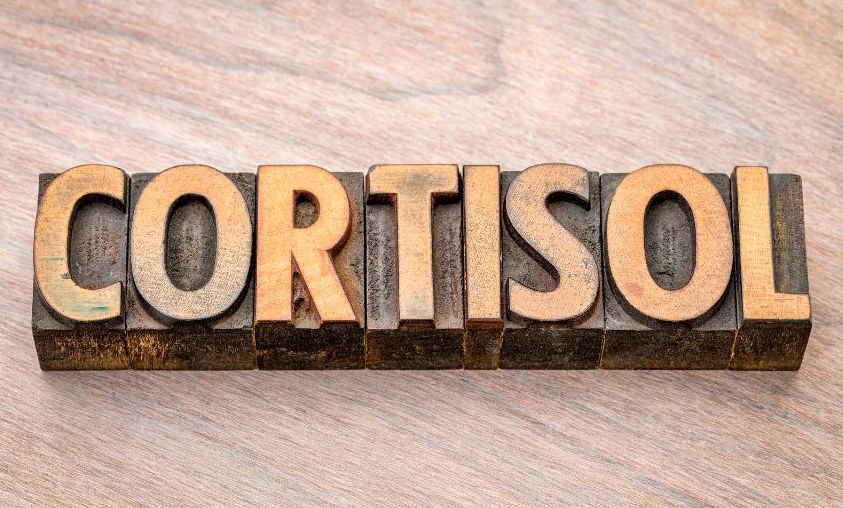
Your body needs fat and movement
Avoiding pairing high-fat foods with carbohydrates/sugar is essential, as this spikes insulin levels and increases stress, which is the opposite of what we want. If my anxious thoughts persist, I acknowledge them and ground myself by getting active, such as walking outside or doing something practical around the house.

My challenge is to not always dwell on the why
I always want to understand the reasons behind things. Currently, my challenge is to remind myself that when I occasionally feel a bit anxious, I need to skip the need to find a big ”why.” Instead, I need to allow those feelings to exist, knowing that, in time, they will pass.
Acceptance is also key to releasing uncomfortable emotions
My experience of healing and emotional regulation is that in the beginning, it was very important for me to know why my emotions came up. As I started releasing more and more fears and heal, it got more and more important to just allow the current state to exist and accept it until it has been processed and transformed.
Not always an easy ”dance”
However, this emotional dance is not easy. This skill is something we need to learn and discern within ourselves: What we need and when we need it. We basically need to date ourselves and reconnect.
Faith builds a solid foundation of trust
My deep faith in life empowers me to navigate challenges with much greater ease than before, providing me with a foundational trust in life, for which I am incredibly grateful. Things do unfold most beautifully when we allow ourselves to be where we are, accept the circumstances, and surrender.

Social anxiety and fear of criticism
I used to struggle with social anxiety, stemming from fears of not being good enough and the fear of criticism. But today, even if I feel anxious from time to time, it’s not coming from that same place of unworthiness as it used to do.
My best investment for my future
Working through my social anxiety has been the best investment I have ever made. That is why I feel so motivated to share what worked for me so that more suffering people can perhaps get inspired and free themselves, just as I did.
Discern between good and bad worry is essential
There’s no denying that anxiety is a dreadful feeling, whether we’ve experienced it occasionally or more frequently. However, not all anxiety is bad.
Worry can be good
Temporary anxiety can help us, for instance, by preparing better for a presentation or choosing a safer route home at night. In such moments, anxiety can be helpful, but…
If we constantly worry about how the future will unfold, we will hinder ourselves from fully living and fulfilling our dreams.
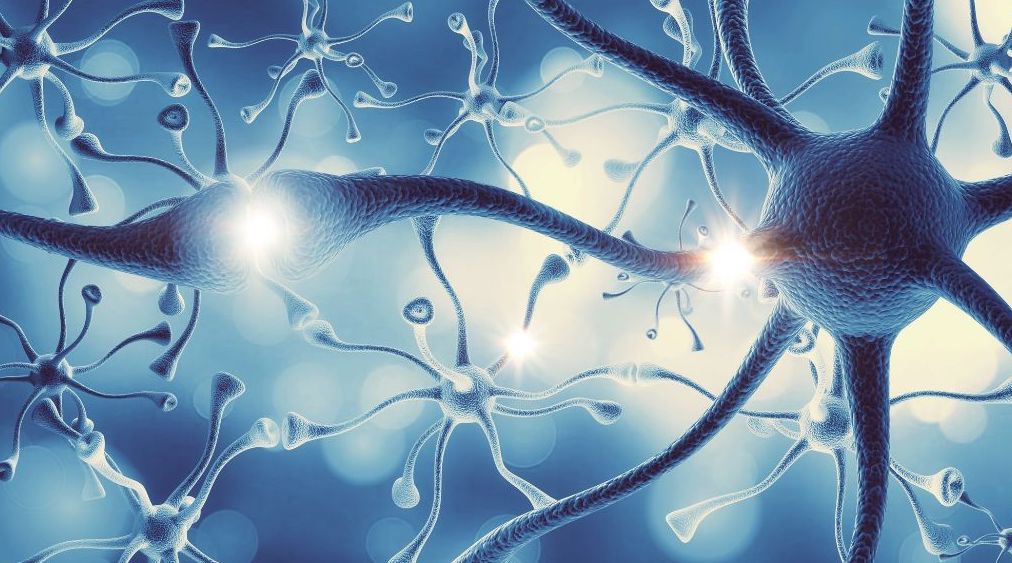
Protect ourselves or relearn the old patterns?
One key when feeling anxious is to look within and start discerning our feelings; what fuels them? Is there something I need to act on? Is this fear of mine something that I need to protect myself from or an emotional pattern I need to change?
Practice being present
A person with anxiety struggles with being present, so being more focused on the now, our inner environment, and reframing our thoughts can really help.
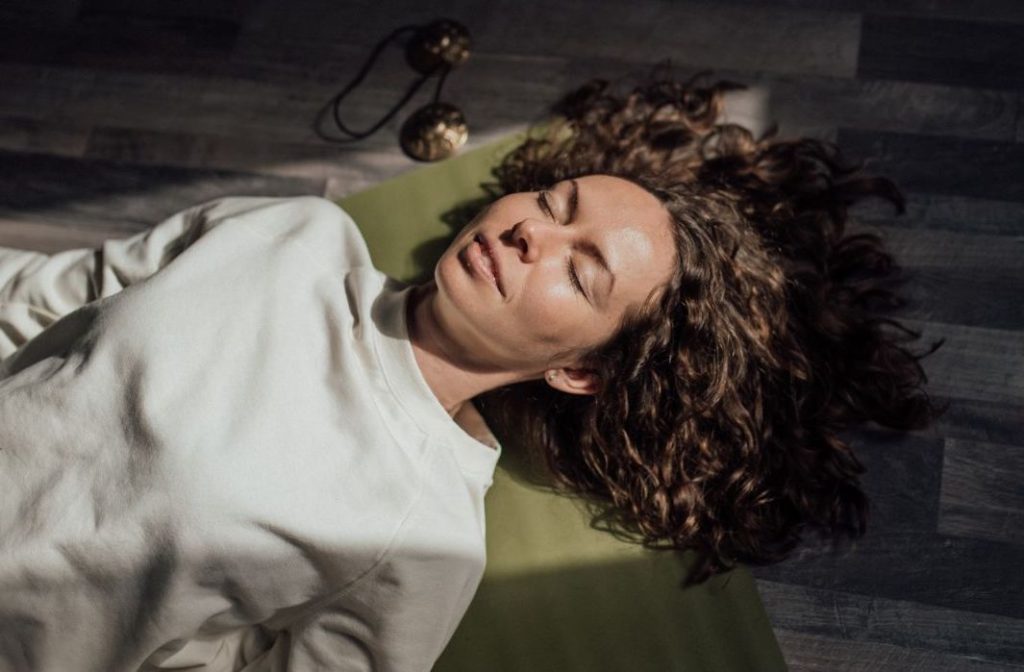
Not only our fears cause anxiety
Causes of anxiety that are not related to fears include factors such as lifestyle choices, imbalances, and diet.
Disclaimer: It’s important to note that worry and anxiety can arise due to factors such as lack of sleep, alcohol consumption, drugs, and medications – and I am not a doctor so I am not giving medical advice. However, in this article the focus is the anxiety and worry that occur due to fears (plus some dietary information), which prevent us from living and experiencing life the way we truly desire.
I highly recommend checking out Dr. Georgia Ede if you are interested in the connection between food and physical and mental health. Here is her YouTube channel, and she has also written an eye-opening book on the subject titled ”Change Your Diet, Change Your Mind.” You can read more on her website.
If you suffer from chronic worry, seek professional help. If you suffer from severe anxiety, consult a doctor or psychiatrist. Remember, it’s okay to ask for help when struggling in life.
What makes you feel unsafe in your environment?
If we often feel worried in our daily lives, it indicates that we lack a sense of safety. As a result, our brains continuously search for potential threats that may arise in the future.

The news does not make you feel more safe!
Low-hanging fruit: If you watch the news three times a day, consider stopping or at least reducing how often you watch it. You will still be aware of what’s happening around you. News channels know that fear sells, which is why much of their content is fear-based.

You struggle with being present
When we worry a lot, we are not living in the present moment. Our quality of life is not very high because our fight-or-flight system is activated when we feel worried like this. Our sympathetic nervous system is turned on to deal with a dangerous situation.
Everyday fears can trigger the same response as facing a lion
Fear can be beneficial when we are in genuine danger. Let’s use the lion as an example because it’s practical. If we face a lion, it’s good for our heart rate to increase, our immune system to shut down, and our feelings of anxiety to increase. In such a situation, we are not meant to be calm, loving, or harmonious because that would significantly raise the risk of the lion attacking us.

Recharging is absolutely crucial
This type of facing-a-lion stress (short-term) is not dangerous for us, but it becomes dangerous and even life-threatening if this state of worry and stress becomes our norm.
Long-term chronic worry is life-threatening due to its negative impact on the immune system and other health aspects.
Survival mode blocks happy feelings
It’s really important to be aware of our current state because when we are in a survival mode, we often don’t experience very nice feelings. We might get a rush, and feel satisfied that we’ve “survived”, but to truly live fulfilling and happy lives, we need to do more than just survive.
It’s helpful to keep a question in the back of our minds as we navigate our daily lives and make decisions: “Am I living now, or am I surviving now?”
How to reduce the power of your fears
I found it very helpful to realize that all the worry I carried was ONLY a survival strategy. This understanding allowed me to lessen the intensity of my fears. When I understood that, I could think more clearly about my situation and tell whether I was in an actual dangerous situation (you know, a lion situation) or if my worry had more to do with emotional stress.
Okay, a lion is not hunting me, but I still feel worried and stressed all the time. Why is that? Continue exploring in the next section to find the root cause.
You can download my workbook for a more guided, step-by-step process.

Uncover the root cause of worry and anxiety
What actually causes our anxiety?
There are various reasons why worry and anxiety occur, but in this discussion, I will focus on fears generated from our past or downloaded from our environment, which lead to limiting beliefs about ourselves, other people, and the world.
1. We take after our parents and download their fearful beliefs
As children, we absorb many behaviors and beliefs from our environment. Most of these are integrated into our subconscious mind during our early years before fully developing our critical thinking skills. As a result, we often cannot analyze whether these beliefs and fears are valid or not! Our minds are basically in a state of hypnosis, downloading everything we come across.
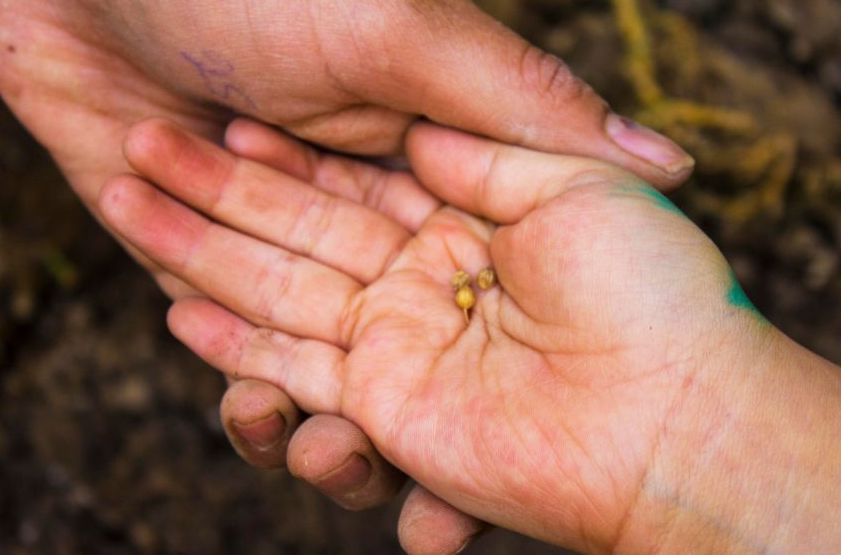
If we were raised by parents or caregivers who had an anxious relationship with for example:
- Money
- Addictions
- Their body image
- Or faced other social or physical challenges such as war or illness.
The likelihood that we adopt similar beliefs and values is quite high.
2. Trauma and past feelings of not being safe
Trauma! Yes, it’s a big word, but we need to talk about trauma ”in a less dramatic way” because trauma is not only caused by these super big and typically harmful events like growing up with abuse, addiction, and poverty. Trauma is everything that is holding us back in life because of fear, for example, through low self-worth and low self-esteem.

Trauma can occur both when we feel unsafe physically but also when feeling unsafe emotionally and not being able to express ourselves fully.
Trauma is everything that makes us feel unsafe at some point and affects us later in life
Trauma is also what didn’t happen to us
Trauma can be caused by anything that, at some point in our life, most likely growing up, made us feel unsafe, made us feel pain, and made us feel fear. And it’s not only what happened to us, it’s also what didn’t happen to us.
Lack of feeling seen
If we didn’t feel truly seen and heard by our parents and if we didn’t experience closeness and affection in the way that we needed, that could have caused trauma in us. In other words, inner wounds that still might shape our lives today.
Dr. Gabor Maté’s work provided me with many pieces of the puzzle
If you are interested in trauma development like this, I recommend looking into Dr. Gabor Mate’s work; visit his website here. He is the first person that I came across who talked about trauma in this way, highlighting that it is only war, addiction, and abuse that have a traumatizing effect on us as children.
Emotional immaturity in parents: A root cause of fear of rejection
Growing up, it’s possible that our parent were dealing with a lot of stressful situations in their life. Perhaps they were constantly focused on their phones due to work and didn’t give us the attention we needed.

Or they may not have been emotionally mature enough to handle their own feelings. When we expressed our needs in the form of anger or sadness, they felt criticized and not good enough. This inability might have affected our self-image.
Consequences of failing to confront our own pain
Unable to cope with those feelings of not being good enough, our parents might have pushed that pain back onto us by adopting a victim mentality, blaming us for the circumstances, or making shameful comments, like saying we were spoiled or we should be happy and grateful.
Fear of vulnerability and/or rejection manifests
Events like these often create feelings of unworthiness and fear of rejection further down the road if not corrected by telling ourselves a new story and shifting our low self-worth thoughts.

Feelings of not being good enough can lead to constant worrying
It’s important to recognize that both significant traumas and those seemingly minor experiences we faced while growing up can leave lasting impacts on our sense of self. Even if those moments didn’t appear harmful at the time, they can still create insecurities within us, leading to excessive worry down the line.
If we do not identify these issues and reshape our narrative, they can affect us in the future. What do I mean by this?
We think everything is our fault
When we face an emotionally unsafe situation in childhood, such as our mother being very upset, our brain leads us to believe that our mother’s anger is due to something we did.
This is a survival instinct that prompts us to change our behavior to feel safer. It’s important to recognize these patterns and reprogram our brains so that we don’t walk around feeling unworthy and not good enough every day.
How limiting beliefs and trauma manifest later in life
Let’s be more clear on how trauma correlates to worry and why we feel more worried if we have unresolved trauma in our bodies.
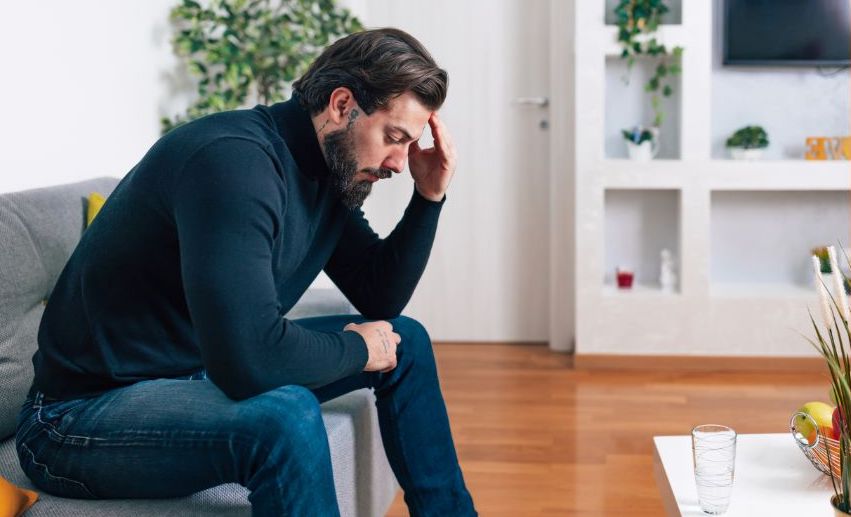
Suppose I grow up feeling unsafe in my environment. In that case, I haven’t built a good enough foundation of trust in order to be able to walk into the unknown future with ease. I will worry a lot about what is going to happen.
It is also a feeling that is familiar to me, and our minds always try to get us back into the familiar state – even if it doesn’t really support us and our long-term goals.
There are strong connections between trauma and anxiety, which can lead to difficulties with trust.
Our brain likes us to stay where we are and not change, but in that state – we do not find our freedom and joyful life. Like nature, we must grow and evolve to be healthy and at peace.

Examples of beliefs causing worry in adults:
- People will reject me if I do not have the perfect body.
- If I don’t sound smart all the time at work, people will think I’m a loser.
- If I express what I really want and need, my husband/wife is gonna think I’m too much and leave me.
- If I can’t afford a house in the same nice area as my siblings, they will think I’m a failure.
- If someone is in a bad mood, that means I did something wrong; I’m not good enough.
- I have to be and do everything perfectly so that no one can criticize me.
- I have to hide parts of myself in order to be loved when I am myself; people don’t like me.
How on earth will I be able to move into an unknown future, feeling good, trusting, and not worried, if I consciously or unconsciously have those beliefs running in my system?
It would actually be a miracle if I didn’t feel worried all the time while holding these beliefs.
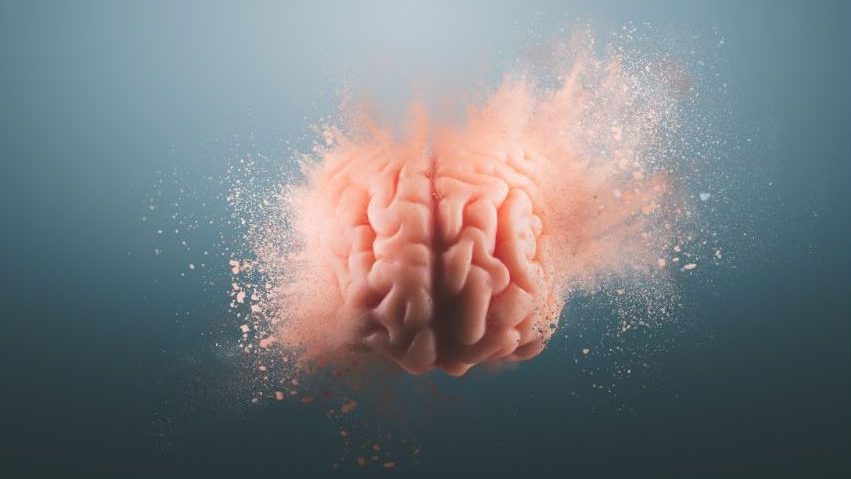
To change something within ourselves that is not serving us well, we first need to recognize its existence. Just as we must be aware of a virus program to deprogram it, we must identify harmful beliefs that have taken root in our minds.
Many of these beliefs developed during childhood, and often, we may not realize they are destructive because they are all we have ever known.
When we are in survival mode, there is no room for trust
If we find ourselves frequently feeling worried and suspect that this is due to unresolved trauma, it’s essential to change the mental programs running in the background of our minds. These programs often tell us that we can’t trust life, other people, ourselves, or that good things are waiting for us in the future.
Sometimes, trust and surrender are the right ways forward
This lack of trust impacts our ability to trust others and ourselves, especially when facing an unknown future where we cannot control events or people. We should, however, try to control other people. We can inspire – but controlling is not very nice in my opinion.
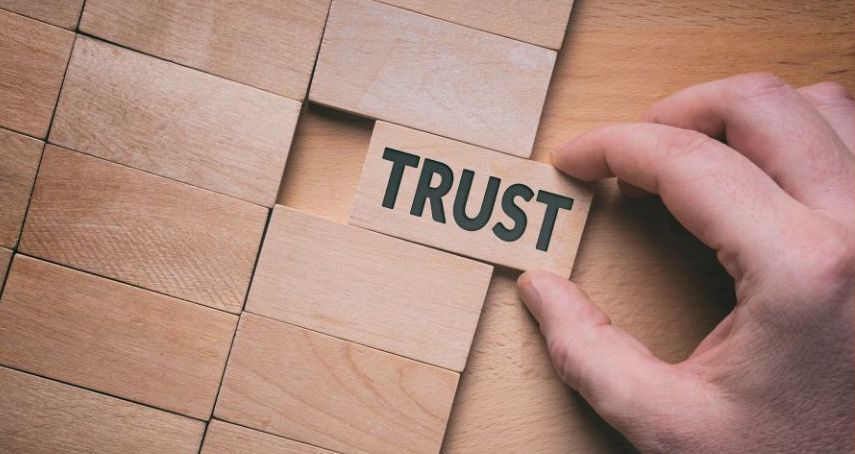
Cultivate trust can reduce anxiety
Accepting our circumstances can help stabilize our state when we feel dysregulated. It’s important to recognize that the future and other events cannot be controlled completely, meaning, accepting this reality can save us time and reduce suffering, even if that is incredibly difficult at times.
To feel good, free, and aligned with our true selves, we need to move into the future with a sense of trust. It means trusting that life and divine intelligence will support us and believing that things will unfold in a way beneficial for us and others.
Being supported does not always mean easy. Sometimes, we need a little challenge to push ourselves to develop the skills we need to fulfill our purpose. Just like at the gym!
Trust your own ability
Managing difficulties is also about having confidence in our own ability to navigate unexpected challenges and trusting that we have what it takes to handle various situations.
Stop creating the future based on past pain
When we have unresolved trauma, meaning that past events still affect us in a destructive way, we fear that the pain we once experienced will show up again.
The feelings of ”not-good-enoughness ” become our tools, pensels, and colors with which we then create our paintings (our daily lives and future) with. So, basically, we create our lives with worry about being criticized, rejected, abandoned, or shamed (laughed at).
Being stuck in fear hinders your purpose
These feelings may lead us to not fulfill our purpose and go after our dreams or to do the things that, deep down, create joy and make us feel excited.

You deserve to live a free, purpose-filled life
As mentioned earlier in this article, the destructive narrative (beliefs) that has been integrated into us by our survival system needs to be replaced with an empowering narrative for us to be free and fulfilled, and we all deserve that!
The moment that changed my ability to be free and authentic
I now want to share a story from my childhood to show how a painful event can shape our entire reality, causing very destructive, hardwired beliefs.
Again, trauma isn’t caused by an event itself; instead, it manifests based on how our mind and body interpret that event. Meaning, the story I unconsciously tell myself about why this event occured. This is why one event can traumatize one person but not another.
My 6th birthday
It was a day filled with joy: the day I turned six years old! I had a wonderful birthday party with plenty of people and a big table with beautifully wrapped gifts.

I remember standing in front of the gifts, full of excitement, it was time to open them, and I had everybody’s eyes on me. I was thriving, and I couldn’t wait to dive into the pile of presents. Also, at that time in my life, I absolutely loved being the center of attention. But then something happened…
The game-changer
The atmosphere completely shifted. One of my relatives commented on my weight, mentioning that I had gotten chubby…
I had no real understanding of the words spoken, and I had no awareness of my looks or weight at that age. I just felt very pretty in my Disney jumper and pink tights.
How I looked was not approved
Even though I did not really have a concept of what was said, with the energy and tone in my relatives’ voices, I could tell immediately that this wasn’t anything good. I was criticized for my appearance, and I was in the middle of the spotlight – in front of everyone.
A shower of shame
I felt a massive wave of shame wash over me, removing all the light of that joyful moment. It was a moment that changed everything. That was the end of my expressing and showing up carefree and authentic. It was the beginning of insecurities, social anxiety, and a limited life, being too self-focused to have true joy.
Why did I start to feel anxious and abandon myself?
It was just to keep myself safe and avoid this painful event from happening again. Our survival instincts drive our brains to change our behavior in order to gain more love and feel safer. While this response is beneficial for survival, it can hinder our ability to feel good about ourselves and others, preventing us from fully experiencing a life filled with freedom and joy.
Disclaimer: Awareness of our traumas is not about blaming. It is about understanding ourselves and our background. Our families and friends most likely did their best with the resources and knowledge they had at the time.
Anxiety and worry can be beneficial; it’s not always a negative thing
It’s important to recognize that not all worry is bad for us; it can actually serve as a valuable guide. For instance, if we have a significant presentation at work in two days and haven’t prepared much, that worry can motivate us to take action. Similarly, feeling anxious about overwhelming bills compared to our income signals a need to take charge and seek solutions.

Worry can lead us to make the right choices at the right time. However, if we find ourselves in a constant state of worry that dims our spirit, we must be curious and look within to understand why. This self-reflection is key to living a healthy and fulfilling life.
Struggling with emotions is human; have compassion for yourself
I want to take a moment to acknowledge that feeling difficult emotions is a very human experience, and it’s completely okay to seek support when you need it. If you’re feeling overwhelmed by worry and anxiety, please consider seeking professional help.
You’re not alone in this journey. While you’re here, I invite you to explore my other posts on this topic; I hope they provide some comfort and guidance.
Take care and remember that you have value and important gifts that need to be shared with the world.
Much love!



